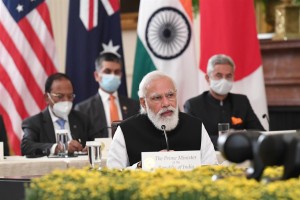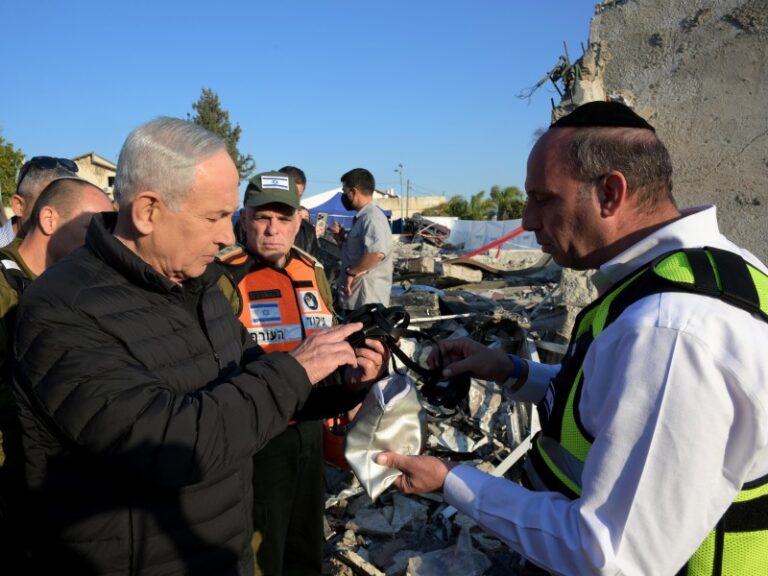
Washington D.C.: Before the bilateral meeting between the two leaders on September 24, 2021, the US President Joe Biden, while showing the Indian Prime Minister Narendra Modi to his seat, pointed out that seat was occupied almost every day by an Indian American. “The Vice President’s mother was from India — a scientist and a remarkable woman,” Biden told Modi.
Yet, unlike the bilateral meeting with Vice President of the United States, Kamala Harris on September 23, 2021, this was not Modi’s first meeting with Biden, and the latter acknowledged by saying, “I want to welcome my friend — and we have known each other for some time — back to the White House. And, Mr. Prime Minister, we’re going to continue to build on our strong partnership”.
Modi had met President Biden on a number of occasions, when he had visited United States, when Biden was the Vice President of the US. Both had met in 2014 and Biden had then hosted Modi to lunch. That was Modi’s first visit to the US as PM.
In 2016, Biden had in fact presided over the joint session of the US Congress that Modi had addressed then.
After Biden’s election as the US President, Modi has spoken to him on at least three occasions in November last year to congratulate him on winning the elections, in February and April this year.
He also attended three summits with President Biden in three summits, all of which were virtual. Two of them were hosted by President Biden, the Quad Virtual Summit in March, the Climate Change Summit in April, and then they were together at the G7 Summit at Cornwall in the UK, but the Prime Minister had participated virtually on that occasion.
Also read: The United States and India – Global Leadership in Action
So there was already a certain amount of familiarity, understanding and friendship between the two leaders unlike Modi’s meeting with Harris, who told Modi about the importance of preserving democratic norms, besides discussing US-India strategic partnership, Covid-19 pandemic and climate change with the Indian Prime Minister.
Biden too said he believed that the U.S.-India relationship “can help us solve an awful lot of global challenges”. He also mentioned: “In fact, back in 2006, I set that hope out, where I said that by 2020 — when I was Vice President — 2020, India and the United States would be among the closest nations in the world with one another.”
Biden’s talks were more encouraging for Modi, when he said, “Of course, our partnership is more than just what we do; it’s about who we are. It’s rooted in our shared responsibility to uphold democratic values, our joint commitment to diversity, and it’s about family ties, including 4 million — 4 million Indian Americans who make the United States stronger every single day.” He also said, “I think that the relationship between India and the United States — the largest democracies in the world — is destined to be stronger, closer, and tighter. And I think it can benefit the whole world”.
The POTUS declared that during the bilateral, both leaders were going to be talking about what more they could do to fight COVID-19, take on the climate challenges that the world face, and ensure stability in the Indo-Pacific, “including with our — our own Quad partners”.
Modi told Biden that he firmly believed that for all democratic countries in the world, “this is going to be a transformative period. I can see that very clearly”.
Modi talked about the “transformative period is in Indo-U.S. relations”, and said when he talked about traditions, “I’m talking about democratic traditions, democratic values — traditions to which both our countries are committed. And I find that the importance of these traditions are — will only increase further”.
Just a day earlier, Harris had told Modi at a joint address to the media,“As democracies around the world are under threat, it is imperative that we defend democratic principles and institutions within our respective countries and around the world”. She had also said in her remarks as she welcomed Modi to her ceremonial office, “And that we maintain what we must do to strengthen democracies at home and it is incumbent on our nations to of course protect democracies in the best interests of people of our countries”.
Her remarks had assumed significance at the backdrop of The Freedom House Index for 2021 report that pushed India down four points from last year, bringing its score from 71 to 67, and also in veiw of the 2021 report of The Economist Intelligence Unit (EIU), which shows India’s ranking nosediving from 27 to 53 out of 167 countries.
The Indian Foreign Office did apparaently have a tough time explaining what Harris might have meant. Indian Foreign Secretary Harh Vardhan Shringla said her comments on democracy, “I think, appreciated the fact that both of our countries represented large and successful democracies and that we needed to continue to work not only within our own countries, but with other countries, to promote the brand of democracy”.Shringla added: “In the discussions, I think she did mention that the US Congress was highly appreciative and kept noting the fact that India and the United States represented the two largest democracies. There was a great deal of appreciation of how both our democracies function. And that was I would say the discussion that took place in the actual meeting, in which the media were not present.”
– global bihari bureau





